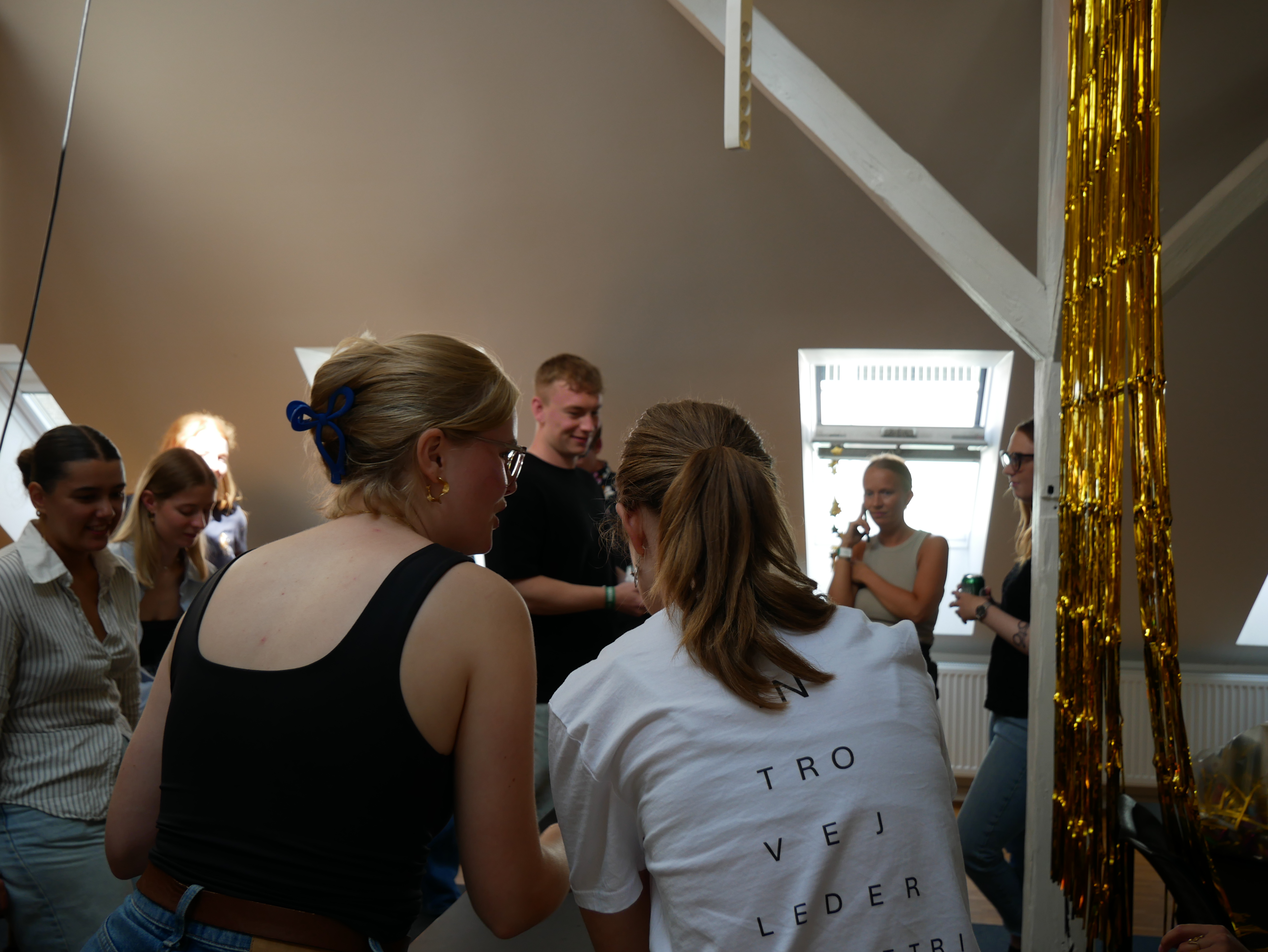Philip and Nadja are voluteering in the omtometry student association.
Meet a volunteer: Philip and Nadja from optometry
How long have you been involved with the Optometry Association?
Philip: “I’ve been involved for about a year and a half. Shortly after I started school, I joined in a loose capacity, and then about six months into my studies, I started participating more seriously.”
Nadja: “I think you got me hooked pretty quickly when I started last summer, and it became more official after our general meeting, where I was elected vice chair.”
What is the Optometry Association?
Philip: “In general, optometry is a bit of a strange size because we fall under the technical field. But we’re not on the same campus as the technical school. We’re not entirely isolated, but we’re not really integrated with those who typically handle such things. This means that optometry doesn’t have a ROS committee as such. We don’t have many elements that foster a lot of internal events within the study program. So, we created the Optometry Student Association to boost social engagement within our study. This can include events, a summer party, or something as basic as organizing an introduction, like a ROS.”
What motivated you to become volunteers?
Philip: “When I started, there wasn’t much going on. There was an attempt to establish this student association, which had started just before I began school in my first semester. But it wasn’t really established yet, so for me, it was a desire to get something going. Both to participate in something myself and to get to know my fellow students better. It’s a very small field we’re in, a very niche subject, which means you end up having contact with everyone. It includes those who have attended the school and those who are generally in the industry. The more relationships and good connections you can build now, the easier it will be for all of us when we enter the workforce later.”
Nadja: “When I started, I think the previous members, like Philip and the others currently in their fourth semester, quickly made a good case for it, and it was something I wanted to continue supporting. I think it’s very important to back it up if you want it to continue.”
Can you briefly mention three good reasons to volunteer?
Networking (Nadja): “The network and planning these various activities, talking to those already in the field, and our fellow students in different semesters. I think that’s very important.”
Personal Gain (Philip): “One of the more personal reasons is the personal gain.”
Supporting Fellow Students (Philip): “If we look at it holistically, it’s also about doing something for your fellow students. We try to create something that everyone can participate in. Especially with our study program where we have a broad range of ages and backgrounds, it can be difficult to find something to unite around if nothing is organized.”
How much time do you typically spend on your volunteer engagement each week?
Philip: “It’s always difficult with these volunteer things; people who do it know that it comes in waves. It’s not a constant engagement week to week, but it means there are some weeks where a lot of hours are spent. In some weeks, you could easily spend at least five hours making things come together. The next week, you might only spend 45 minutes answering some emails. So it varies a lot. But if I had to say an average, I think I spend around 2 to 2.5 hours a week maintaining various things”
Nadja: “I don’t think I spend much more time than that either, and then occasionally, we meet during lunch breaks and discuss some things. We’ve also talked about some things at the Friday bar.”
Philip: “It’s a single study, which also means we meet with each other, where it might not feel like you’ve set aside time. We haven’t scheduled a meeting in the calendar, but we’re having a beer, and then some things come up.”
Have you learned anything from volunteering?
Nadja: “I haven’t been volunteering for very long, but something like writing a good email, a formal email to some of the chains we correspond with, is something I’m still learning. It’s not something I’ve done much before.”
Philip: “The group of people you’re doing all this work for is often a broad assembly. So, it’s important to be inclusive. It’s a practice in trying to engage everyone or at least give everyone the opportunity to participate. Sometimes you can get a bit biased by what you and your closest friends think would be cool.”
Why should one volunteer?
Philip: “Specifically, in relation to optometry, as mentioned, it’s a very small field. I believe there’s great value in engaging in a smaller study program. We have an industry, in our case, that’s very interested in us. Not everyone attends conferences and networks. Not everyone creates the best LinkedIn profile. But you still need to try to profile yourself a bit. So, another way to do this, if you’re not someone who likes to be in the spotlight, is through these kinds of activities, where you can build a network. And it’s a win-win because you get to organize cool events on the side.”
Nadja: “I also think that getting something started is great. You want to do many things. If no one takes the initiative to do it, nothing happens. I think it’s great if we have many people taking the initiative together.”
Philip: “There is personal development associated with volunteer work because you take on responsibility and help get things started. There’s a personal development aspect to it if you’re willing.”

Baggrundsinfo
- Navn: Philip Andersen
- Uddannelse: Optometri
- Semester: 5. semester
- Forperson i optometristernes studieforening
- Navn: Nadja Risnær
- Uddannelse: Optometri
- Semester: 3. semester
- Næstforperson i optometristernes studieforening
About the Author


